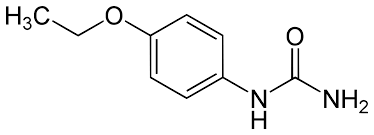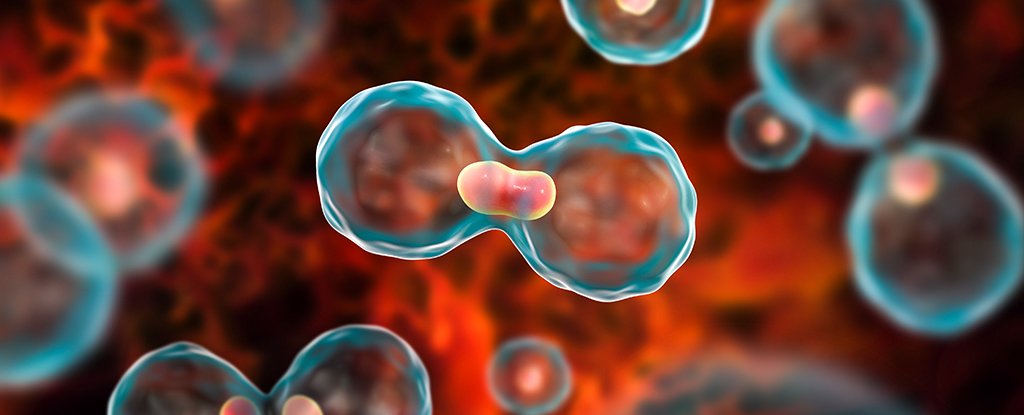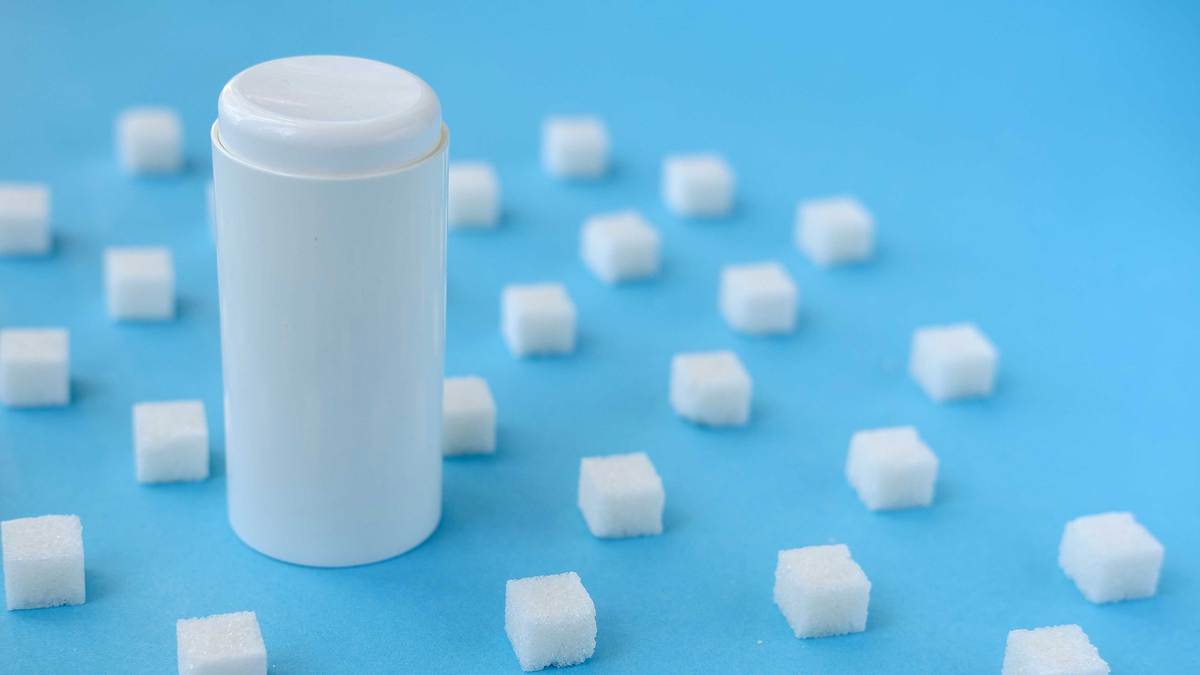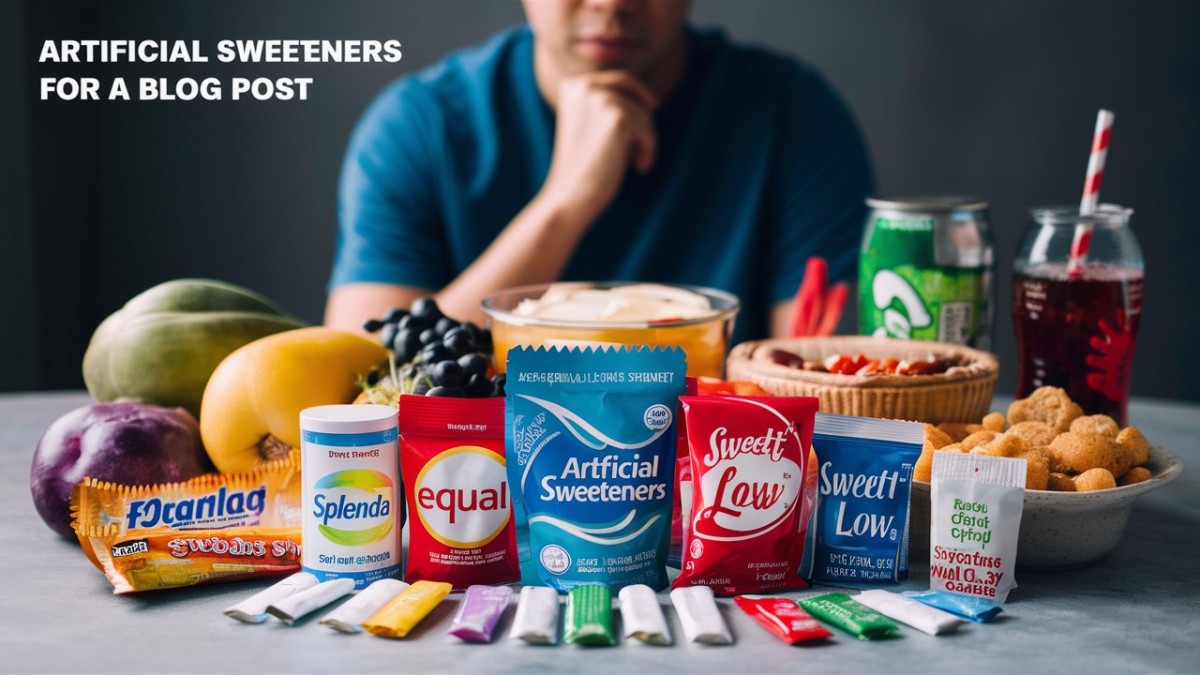Modern diets frequently substitute artificial sweeteners for sugar as a low-calorie or calorie-free alternative. They can be found in various products, including sugar-free gum, low-calorie desserts, diet drinks, and certain medicines. The allure of enjoying sweet flavors without ingesting calories is powerful, particularly considering the rising levels of obesity and associated health issues. Nonetheless, the effects on the health of artificial sweeteners are a subject of much discussion and study. This blog explores different aspects of artificial sweeteners and their potential effects on health.
What do artificial sweeteners consist of?
Synthetic sugar substitutes, known as artificial sweeteners, are much sweeter than sugar, making them suitable for smaller quantities. Here are a few popular artificial sweeteners:
Aspartame
Used in “diet “foods. Including soft drinks, drink mixes, gelatin desserts, and low-calorie frozen desserts. Aspartame is produced from two amino acids – aspartic acid and phenylalanine, and is 180 times sweeter than sucrose, Although the FDA points to more than 100 scientific experiments that purportedly document the safety of aspartame. Aspartame intake is known to be dangerous for persons with phenylalanine, In addition, aspartame is not recommended for use by pregnant or lactating women.
Cyclamate
Synthesized in 1937, cyclamate was initially marketed as a tablet that was recommended for use as a sweetener for people with diabetes. USA, the FDA banned the sale of cyclamate in 1970 after lab tests indicated that large amounts of cyclamate cause bladder cancer
Dulcin
 Dulcin is 250 times sweeter than sugar. It was an important sweetener of the early 20th century and had an advantage over saccharin in that it did not possess a bitter aftertaste. An FDA study in 1951 raised many questions about its safety that cause unspecific carcinogenic properties.
Dulcin is 250 times sweeter than sugar. It was an important sweetener of the early 20th century and had an advantage over saccharin in that it did not possess a bitter aftertaste. An FDA study in 1951 raised many questions about its safety that cause unspecific carcinogenic properties.
Saccharin
Individuals with sulfonamide sensitivities can encounter hypersensitive responses to saccharin, even though it has been proposed that this might be because of an overall inclination to unfavorably susceptible responses as opposed to a particular cross-response between antimicrobial sulfonamides and non-antimicrobial ones (like saccharin). Sensitive individuals may experience burning sensations, swelling, and rashes of the mouth and lips as a result of the saccharin in toothpaste.
Stevia
Based on long-term studies, the WHO's Joint Experts Committee on Food Additives has approved a daily intake of up to 4 mg/kg of body mass of steviol glycoside. In 2010, The European Food Handling Authority laid out a satisfactory day-to-day admission of 4 mg/kg of steviol, as steviol glycosides. A review "conducted for" the Center for Science in the Public Interest reveals that there are no published carcinogenicity results for rebaudioside A (or stevioside), and the Memorial Sloan Kettering Cancer Center warns that "steviol at high dosages may have weak mutagenic activity"
Possible Dangers to Health
 Although artificial sweeteners have advantages, their consumption is surrounded by controversy. Studies have shown multiple possible health dangers linked to their extended usage.
Although artificial sweeteners have advantages, their consumption is surrounded by controversy. Studies have shown multiple possible health dangers linked to their extended usage.
Effects on the body's metabolic functions
Some studies suggest that artificial sweeteners may interfere with the body's ability to control blood sugar levels. A research study released in the journal Nature discovered that artificial sweeteners might disrupt gut bacteria composition, leading to glucose intolerance. These results suggest that artificial sweeteners could have a more intricate effect on metabolism than previously thought.
Taking good care of your digestive system
The human stomach microbiome assumes a significant part in influencing a singular's general well-being, including capabilities like processing and the resistant framework. Artificial sweeteners may alter the gut microbiome balance, putting health as a whole at risk, according to research. Changes in the microbiome of the gut have all been linked to conditions like obesity, insulin resistance, and inflammatory conditions.
Desire for food and strong urges
Although artificial sweeteners offer a sweet flavor without the added calories, research indicates they might not completely fulfill the brain's craving for sweetness. This could result in a higher appetite and desire for sweet foods, potentially hindering attempts to decrease caloric consumption and control weight.
Worries about Cancer
 The connection between cancer and artificial sweeteners has been a subject of research and discussion for many years. During the 1970s, research initially connected saccharin to bladder cancer in rats, resulting in safety measures and restrictions implemented in certain countries. Nevertheless, further research examining various human populations has not found conclusive evidence linking cancer to artificial sweeteners. The FDA and EFSA agree that artificial sweeteners are safe to consume as long as the recommended guidelines are adhered to.
The connection between cancer and artificial sweeteners has been a subject of research and discussion for many years. During the 1970s, research initially connected saccharin to bladder cancer in rats, resulting in safety measures and restrictions implemented in certain countries. Nevertheless, further research examining various human populations has not found conclusive evidence linking cancer to artificial sweeteners. The FDA and EFSA agree that artificial sweeteners are safe to consume as long as the recommended guidelines are adhered to.
Effects on the nervous system
Specialists have conducted thorough research on the impact of Aspartame on the nervous system. Certain people have claimed they felt headaches, dizziness, and alterations in mood following the intake of aspartame. However, there is insufficient scientific evidence linking aspartame to neurological disorders. Most studies have not found a substantial relationship between ingesting aspartame and adverse impacts on the nervous system.
Responses to allergic reactions
 ●While not common, some people may experience allergic reactions to certain artificial sweeteners. Symptoms of the disease may include rashes, stomach issues, and respiratory issues. Individuals with allergies to specific sweeteners should avoid consuming them to avoid experiencing any negative effects.
●While not common, some people may experience allergic reactions to certain artificial sweeteners. Symptoms of the disease may include rashes, stomach issues, and respiratory issues. Individuals with allergies to specific sweeteners should avoid consuming them to avoid experiencing any negative effects.
●Regulators' stance and advice on consumption, as well as recommendations.
●Regulatory authorities worldwide have implemented rules for the secure use of artificial sweeteners. This suggestion is supported by extensive research and aims to ensure the safe consumption of these substances.
●The recommended amount of a substance that can be consumed daily without health risks.
●The Acceptable Daily Intake (ADI) is the highest quantity of a substance that can be ingested every day without posing significant health hazards over an individual's lifespan. The FDA established a maximum daily consumption of 50 milligrams per kilogram of body weight for aspartame. This is comparable to consuming approximately 18-19 cans of diet soda daily, which is much higher than usual intake levels for the average adult.
Observing and keeping abreast of changes
Regulatory agencies continuously watch new research and revise guidelines when needed. In 2013, the EFSA performed a thorough reassessment of aspartame, confirming its safety at existing levels of consumption.
Choosing wisely with proper information
Due to contradicting evidence on the health impacts of artificial sweeteners, consumers should carefully consider their personal health needs and preferences when making choices.
Moderation plays a vital role
While artificial sweeteners can help control calorie and blood sugar levels, it is important to use them in moderation. Dependence on these alternatives too much may not solve the root dietary problems, like eating too many processed foods.
Alternative options found in nature
For individuals worried about artificial sweeteners, they may find natural options such as stevia or monk fruit extract more appealing. These natural sweeteners have fewer health risks than artificial ones, but it's still crucial to use them in moderation.
Reading labels
Consumers should stay vigilant when checking food labels, as unexpected products may contain artificial sweeteners. Knowing the different types of sweeteners in foods can assist people in making improved dietary decisions.
Finally, to recapitulate
Artificial sweeteners provide many advantages, especially in terms of weight management, blood sugar control, and dental health enhancement. Nonetheless, research and discussions are extensively delving into the long-term effects on an individual's overall well-being. While authorities claim it is safe in recommended quantities, consumers should still exercise caution and monitor their intake. In the field of nutrition, it is important to practice moderation and maintain a balanced approach for good health, similar to other nutrition-related aspects. People can enjoy the benefits of artificial sweeteners and minimize potential risks by staying informed and making thoughtful choices.
